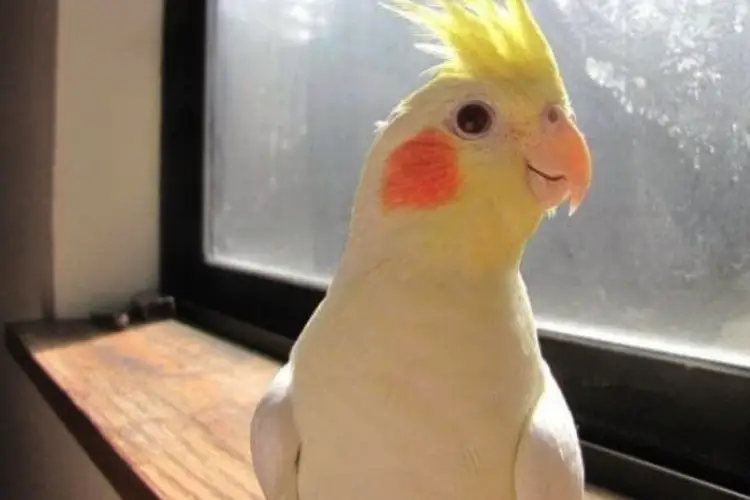Cockatiels are the smallest of the Cacatuidae family, a family of loud and communicative birds. Between the two genders, females are quieter, which varies among individual birds. However, females can be very loud and make weird noises, but why?
So, why do female cockatiels make weird noises? Female cockatiels make weird noises if they’re distressed, scared, or during the mating and nesting season. These noises can be a squeak or screech, and each has a meaning.
Like other animals, female cockatiel noises have reasons. Read below to know these noises and what they mean.
Why Would Your Female Cockatiel Be Making Weird Noises?
Cockatiels can communicate and mimic some human words. These abilities make them some of the most popular pets in many households. Despite males being the noisier of the pair, females are loud too. Sometimes they make a lot of noise, especially when expressing themselves.
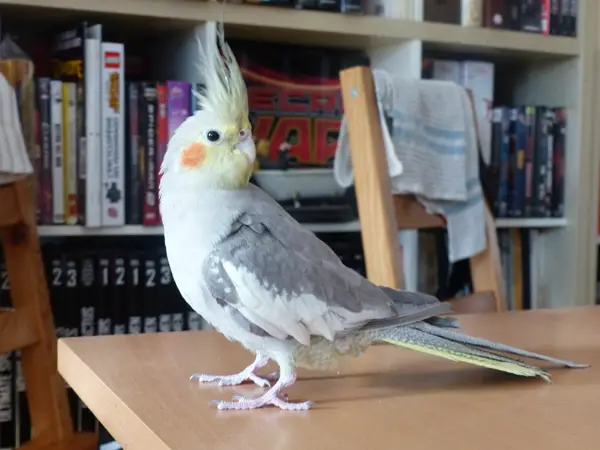
Female cockatiel sounds vary and have different meanings. To better understand the weird noises, you can also observe other signs like the wings and crest. Generally, female cockatiels are noisier during the breeding and nesting season than at other times.
Female Cockatiel Sounds: What Noises Do They Make?
Studying other cockatiel body languages can help you understand their communications better. However, knowing the actual noises is crucial since some sounds are unaccompanied by a gesture. Below are various female cockatiel noises and possible body language that might accompany them.
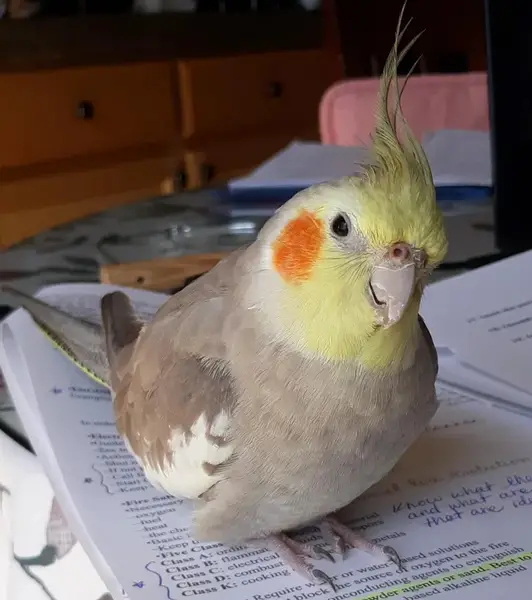
- Screech – A screech or scream is a high tone sound female cockatiels sometimes make. Occasionally, the bird will raise its head crest hair to signify the bird is excited. If your pet bird makes these sounds while its crest hairs are resting backward, they are likely angry.
- Hiss–Hisses are loud, sibilant sounds, most times issued as warnings. The bird’s head crest hairs appear raised, and its wings are held open.
- Baby noise – These noises resemble a hiss, but in this instance, the bird’s head crest is relaxed. The noises are referred to as baby noises since most baby birds make them when hungry.
When your female tiel doesn’t stop making noise, you may get concerned. Try to identify the noises and behavior accompanying them from what we’ve shared. Since female cockatiels are a bit shy, too much noise may imply they need the owner’s attention. Below are more details regarding specific sounds and behavior.
What Do the Female Cockatiels Noises Mean?
As communicative birds, cockatiels use vocals to communicate with their owners. However, without knowing what noises mean, you might misinterpret the information. Below are the meanings of some cockatiel noises and how to solve them.
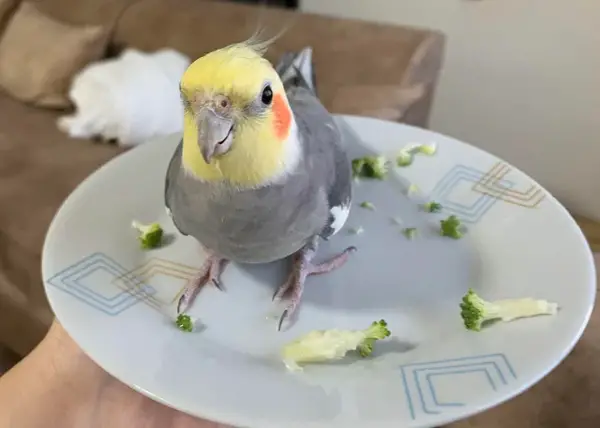
1. Agitation
Agitated female cockatiels will screech and scream. These sounds are accompanied by wing spreading or flapping. During the breeding season, female birds are hormonal and often angered.
2. Excitement
Like male cockatiels, female cockatiels express excitement by squawking and chirping. Mostly, this happens during early mornings or late evenings. They make the noises to mark the start and end of the day.
3. Seeking Attention
Female cockatiels make baby noises to seek attention. It is a common behavior after their owner comes home or walks out of the room.
4. Fear
Some cockatiels fear darkness while some don’t. Your female bird friend might be experiencing night fright, hence making weird noises.
5. Sickness
Your female cockatiel may also express sickness vocally. Although they scream when sick, this is also coupled with drowsiness and watery eyes. Observing carefully, you may also notice a change in their stool consistency. If this is the case, you should call an avian vet for diagnosis and treatment.
At the same time, cockatiels seem to enjoy listening to their melodious voices, and the females are no exception. They have beautiful and outstanding voices that they also love listening to. But, females do it moderately because they are known to be less noisy. If the female cockatiel’s noises are in excess, you should look further to rule out any of the above issues.
Also read: Do Cockatiels Have a Good Sense of Smell?
How Do I Know If Noises Are Related to Mating Behavior or Not?
Most breeders who are used to bird mating behaviors can point them out with certainty. However, for most first-time breeders, this tension is hard to tell if it’s related to breeding. Some recurring female cockatiel mating behavior includes:
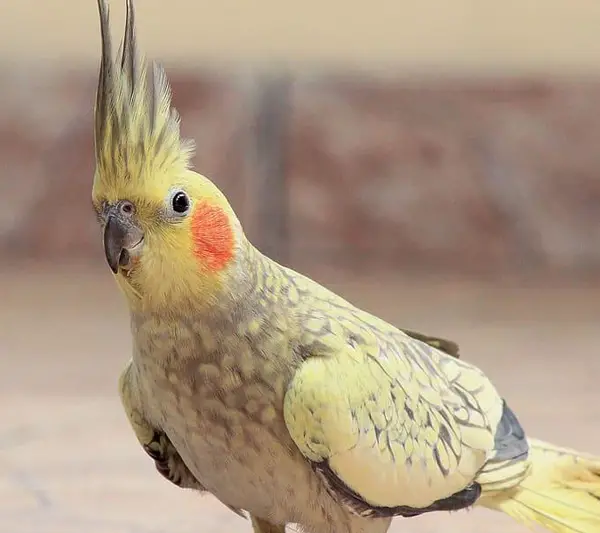
- Aggression – Aggression is towards other birds in the cage or their pet parents.
- Noise – This involves day and night screeching.
- Territoriality – The bird becomes very protective of its nesting area or the whole cage.
- Excessive laying of eggs– Laying many eggs can be dangerous if the pet is not on a healthy diet. This can result in a condition known as egg binding.
To tell if the behaviors are related to mating or not, observe other sounds they make. The hissing noises are mostly related to mating, though sometimes the bird will excessively scream and squeak. Check the bird’s age, where most mating is likely between 10 – 12 months after hatching.
FAQ
Though cockatiels are less noisy than cockatoos, they can sometimes be overly noisy. Female cockatiel noises are more concerning since they are the quieter of the two genders. Below are some of the frequently asked questions on this topic and their answers.
Cockatiels squeak for many reasons, including fear or excitement. To determine the reason, learn about the different noises these birds make. Female cockatiels squeaking noises are most times made during the mating season when they’re most hormonal.
Most times, male and female cockatiels share similar sounds. These sounds include chirps, whistling, and squawks, with the female making the quieter ones. However, agitated or fearful female cockatiels will be loud and make screeching or screaming sounds.
If your female cockatiel starts chirping from nowhere, you should check their cage properly. Maybe they have seen something new in their environment. Although what they see may not necessarily be threatening, they may be chirping in an attempt to understand it. It could be a toy or a pet.
Related: Noisy Cockatiel
Outro
Cockatiels make beautiful whistling and vocalizing sounds. However, at times these birds get noisy and squeaky. The reasons and meaning of these sounds can be determined by the sound they make.
Female cockatiels are noisier during breeding seasons. This is among the mating behaviors common in most birds in these periods. The meaning of these noises includes fear, excitement, and agitation.
